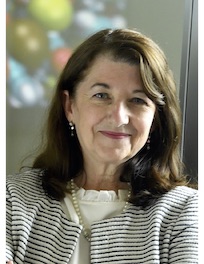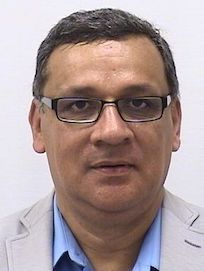Advanced Research Computing at Hopkins: An Adventure in Shared Governance
The Rockfish High Performance Computing Cluster went into production in March 2021. Initially funded by an MRI grant from the National Science Foundation (OAC1920103) with cost-sharing provided by the Johns Hopkins Schools of Engineering and Arts and Science, as well as from the provost office, it replaces the Bluecrab compute cluster that went into production July 2015. The MRI grant allows three institutions use of these resources, Johns Hopkins University, Morgan State University and NSF’s XSEDE. A “condominium business model” was developed so research groups (PIs) can add compute “condos” to the cluster, share resources and increase the computational capability of the instrument. As of January 2022, the system has over 35,000 cores 31 faculty-added condos with additional coming soon. A commitment from several JHU Deans have created a sustainability plan to fund multi-million dollar ‘technology refreshes’ on an ongoing basis. A faculty-staff oversight committee ensures that there is a close relationship between the system administrators, vice Deans, and faculty users. The net result is a successful adventure in shared governance that provides impressive petascale computing resources that are shared in a manner ensuring load-balancing and hence optimal usage with a personal touch that is not possible with larger but more impersonal national supercomputer facilities.
Date and Time
Location
Hosts
Registration
-
 Add Event to Calendar
Add Event to Calendar
Loading virtual attendance info...
Speakers
 Paulette Clancy of The Johns Hopkins University
Paulette Clancy of The Johns Hopkins University
Biography:
Paulette Clancy is a Professor and the inaugural Head of the Department of Chemical and Biomolecular Engineering at Johns Hopkins University. She also holds the title of the Samuel and Diane Bodman Professor Emerita of Chemical Engineering at Cornell. Her role in the CAEP initiative is to provide computational support in the form of predictions of structure and property and the implications of changing the processing conditions on both.
She has a long history in leading computational research. She is currently an Associate Director of the Hopkins Center for Integrated Structure-Materials Modeling and Simulation. She was the inaugural Director of the Cornell Institute for Computational Science and Engineering for almost 10 years and is reprising a similar role at Hopkins, chairing a faculty oversight committee for our petascale research computing resources, ARCH.
Her research group is recognized as one of the country’s leading computational groups in atomic-scale modeling of materials and algorithm development. Her current thrust is to develop machine learning algorithms to accelerate the search for optimal materials processing protocols. Her group has always been focused on electronic materials, but it also includes more esoteric projects include xenobiology (Life on Titan) and a screening of therapeutic oligomers to maximize antibacterial ability. She has won numerous awards for mentoring, service learning and civic engagement, and promoting those from under-represented groups.
Email:
 Jaime Combariza of The Johns Hopkins University
Jaime Combariza of The Johns Hopkins University
Biography:
Dr. Combariza is an associate research professor in the Department of Chemistry and Director of the Advanced Research Computing at Hopkins (ARCH) High-Performance Computing Facility at the Johns Hopkins University. Prior jobs include director positions Dartmouth College and Brown University. He earned his Ph.D. from the Southern Illinois University at Carbondale in Chemistry and Biochemistry and completed postdoctoral fellowships at the University of Arizona in Tucson and the Louisiana State University in Baton Rouge.
Dr. Combariza has published multiple papers in the Journal of Physical Chemistry and has also presented on the Management of Massive Data in Mining Astronomy and Biomedicine at the CMM Symposium on Advanced Applications in Mathematics and Computer Sciences. He is also an active participant in Research Data Management Implementations and is leading the building of Craedl tool to facilitate collaborative environments.
Email:
Agenda
7:00 pm - Introductions
7:05 pm - Presentation Begins
8:05 pm - Open Q&A
8:15 pm - Close

